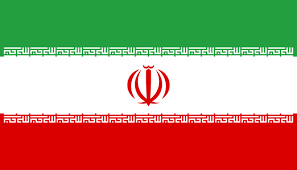Language/Iranian-persian/Vocabulary/Feelings-and-Emotions
In today's lesson we are going to study Persian vocabulary for expressing emotions.
Feelings and emotions are an essential part of human experience, and they play a significant role in our interactions with others. In Iranian Persian, there are many words to describe different feelings and emotions.
Here are some of the most common ones:
- Khoshhal (خوشحال): Happy
- Ghamgin (غمگین): Sad
- Ashena (آشنا): Familiar
- Bikhial (بیخیال): Carefree
- Bikhod (بیخود): Ecstatic
- Delband (دلبند): Endearing
- Delkhor (دلخور): Angry
- Delshodeh (دلشده): Disappointed
- Eshtebah (اشتباه): Embarrassed
- Farakhani (فراخنی): Relieved
- Gharibeh (غریبه): Lonely
- Habs (حبس): Trapped
- Hasud (حسود): Envious
- Hekayat (حکایت): Nostalgic
- Heyvanat-pasand (حیوانات پسند): Animal-loving
- Jazab (جذاب): Attractive
- Khofnak (خوفناک): Scary
- Khorshid (خورشید): Optimistic
- Mohtaram (محترم): Respectful
- Parastesh (پرستش): Adoring
More Words
| English | Persian | Pronunciation |
|---|---|---|
| exhausted | خیلی خسته / نیمه جون | kheyli khaste |
| tired | خسته | khaste |
| overjoyed | خیلی خیلی خوشحال | kheyli khoshhal |
| happy | خوشحال / شاد | shad |
| surprised | شگفت زده / متعجب | shegeft zade |
| furious | خیلی عصبانی / از کوره در رفته | kheyli asabani |
| angry | خشمگین / عصبانی | asabani |
| upset | ناراحت / غمگین | narahat |
| frustrated | نا امید / درمانده / سردرگم | na omid |
| confused | گیج / منگ | gij |
| bored | کلافه / کم حوصله / کسل | kam hosele |
| humiliated | خیلی پریشان | kheyli parishan |
| embarrassed | پریشان / آشفته | parishan |
| terrified | دست پاچه / خیلی وحشت زده | kheyli vahshat zade |
| scared / afraid | ترسیده / وحشت زده | tarside-vahshat zade |
| excited | هیجان زده | hayejan zade |
| proud | سر افراز / مفتخر | sar afraz-moftakhar |
| homesick | دلتنگ خانه / دل تنگ | del tang |
| in love | عاشق | ashegh |
| lonely | تنهای تنها و غمگین | tanha va ghamgin |
| hurt | زخمی / آسیب دیده | asib dide |
| sad | افسرده / غمگین | afsorde-ghamgin |
| relieved | آسوده خاطر / خوشحال | asode khater |
| well | سرحال / خوب | khob-sar hal |
| worried | نگران | negaran |
| hot | داغ | dagh |
| cold | سرد | sard |
| in pain | دردمند / درد دار | dard mand |
| nervous | عصبی | asabi |
| uncomfortable | ناراحت / مضطرب | moztareb |
| calm | آرام / راحت / خونسرد | aram |
| disgusted | منزجر / متنفر | motenafer |
| sleepy | خواب آلود | khab alod |
| full / satisfied | سیر | sir |
| starving | خیلی گرسنه /شبیه قحطی زده ها | kheyli gorosne |
| hungry | گرسنه | gorosne |
| thirsty | تشنه | teshne |
Phrases
Some phrases that you might find useful in expressing your feelings in Iranian Persian are:
- Man khoshhalam (من خوشحالم): I'm happy.
- Digeh nemitavanam bikhod basham (دیگه نمیتونم بیخود باشم): I can't be any happier.
- Man ghamginam (من غمگینم): I'm sad.
- Man delkhoram (من دلخورم): I'm angry.
- Delam barat tang shodeh (دلم برات تنگ شده): I miss you.
- Man eshtebah kardam (من اشتباه کردم): I'm embarrassed.
- Man farakhani kardam (من فراخنی کردم): I feel relieved.
- Man gharibeham (من غریبهام): I feel lonely.
- Man khofnak mikhoram (من خوفناک میخورم): I'm scared.
- Man mohtaram-e shoma hastam (من محترم شما هستم): I respect you.
Dialogue
And now, here is a dialogue using the Persian vocabulary for feelings and emotions:
Person 1: سلام، حالت چطوره؟ (Hi, how are you feeling?)
Person 2: سلام، خوشحالم. تو چطوری؟ (Hi, I'm happy. How about you?)
Person 1: منم خوشحالم، مدتی بود دوست داشتم باهاتون صحبت کنم. (I'm happy too, I've been wanting to talk to you for a while.)
Person 2: خیلی خوبه که صحبت کردیم، از تعطیلاتت راضی بودی؟ (It's great that we're talking, did you enjoy your vacation?)
Person 1: کمی دلم تنگ شده بود ولی خوش گذشت، اما اشتباهی هم کردم و حسابی احساس خجالت کردم. (I was a little homesick, but it was enjoyable. However, I made a mistake and felt really embarrassed.)
Person 2: چه اتفاقی افتاد؟ (What happened?)
Person 1: یکی از رفقا رو به اشتباه مسخره کردم و الان خیلی پشیمونم. (I accidentally made fun of one of my friends and now I regret it a lot.)
Person 2: اتفاقاً منم اینجوری شده بودم، ولی بعداً باهاش معذرت خواهی کردم و درست شد. (I've actually been in a similar situation, but I later apologized to him and everything got better.)
Person 1: حق با توست، فکر میکنم منم باید همین کار رو بکنم. (You're right, I think I should do the same thing.)
Person 2: حتماً این کار رو بکن و مطمئن باش همه این اشتباهات میتونن درست بشن. (Definitely do that, and make sure that all these mistakes can be fixed.)

